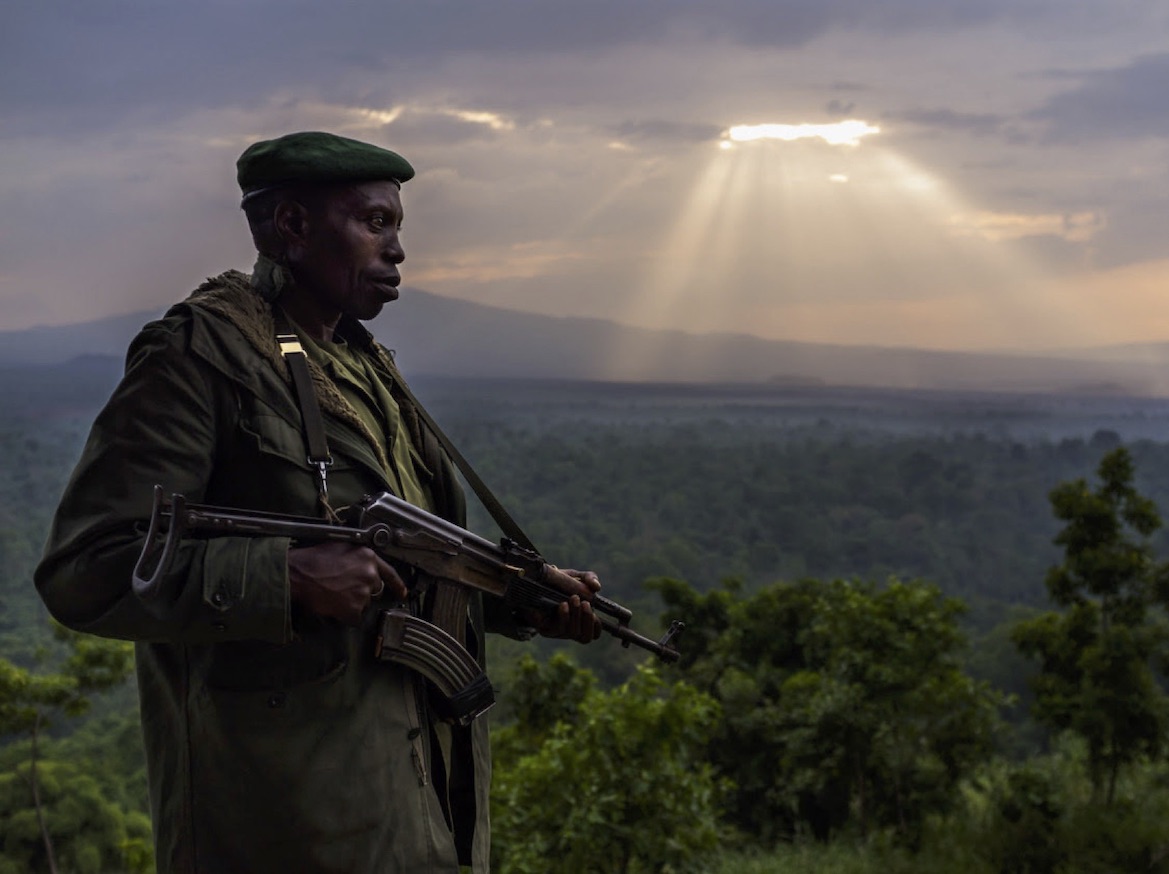THE GREEN ARMY

Until recently, an elephant was killed in Africa every 15 minutes. Today, nature protection has risen to defend itself. Thanks to Western funding, military training, and cutting-edge high tech, rangers are cracking down on poachers. However, this aggressive militarisation has a dark side. An alarming view behind the scenes of Africa’s armed conservation efforts that Western aid has actively propelled.
Today, many African natioonal parks seem to finally have achieved, what nature conservatioonists around the world have been demanding for decades. The diversity of species is secured and poachers have been pushed back. Yet, behind this success story of armed nature protection looms a deadly dilemma. At first glance, there is reason for optimism. The historically high numbers of nature reserves in Africa frequently makes headlines. These stories are accompanied by reports on the rescue of previously endangered species: For the first time in decades, in Botswana, elephant shooting quotas have been restored. The population has finally recovered. To achieve this, Western conservation groups and development workers have collaborated with African national parks to install a system of aggressive militarisation. The victims are civilians who live on the fringes and sometimes within the boundaries of the parks. Threats, arrests, torture, fatal guntire - these incidents are dismissed as isolated cases and accepted as “justifiable collateral damage”. African states and Western donor countries close their eyes. As they all benefit from the system, this seems all too understandable. We untangle a global network of players and uncover the winners and losers of this system. We start at the roots: What happens with the donations we happily throw into the tin boxes of the WWF fundraisers dressed in those funny panda costumes? Why is the German development bank KfW speculating on behalf of the Development Ministry with 35 million Euros of tax money on the London Stock Exchange in favour of a civil war country? All we know so far: Development aid packages labelled ‘nature conservation‘ should now rather read ‘militarisation‘. In Africa we meet human rights activists who risk their lives and limbs, journalists who take on powerful players. We meet impoverished villagers who will be forever scarred by their gunshot wounds, defectors who have broken with this interpretation of ranger duties. In Europe we meet young environmental activists who promote nature conservation on Instagram, eco-lobbyists who guide politics, “Auntie Anne“, who buys certificates to undo the environmental damage of her last cruise ship voyage, representatives of the WWF who want nothing less than to save the planet. Our contributors often withhold straight and honest answers, but we investigate, expose contradictions, and uncover the dark secrets of nature conservation in Africa.